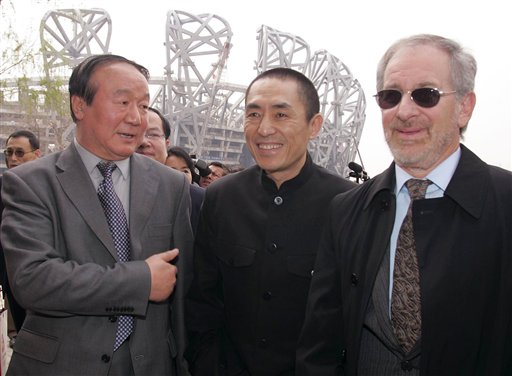Spielberg pullout from Olympic Games over Darfur crisis a major public relations hurdle

Feb 14, 2008
BEIJING – Steven Spielberg was supposed to lend a little Hollywood glitz to this year’s Beijing Olympics.
Instead, the heavyweight director’s rejection of a role in the Summer Games on human rights grounds stands as the event’s biggest political challenge yet.
Spielberg, who won an Oscar for his 1993 Holocaust film “Schindler’s List,” said he was turning down a position as artistic adviser to the opening and closing ceremonies because China was not doing enough to pressure its ally Sudan into ending the humanitarian crisis in the Darfur region.
That decision drew praise from a slew of other groups critical of Beijing, boosting a months-long campaign by activists to spotlight the communist regime’s human rights record.
Although not entirely unexpected, Spielberg’s announcement Tuesday appeared to catch Beijing flat-footed. Neither the organizing committee nor China’s Foreign Ministry had responded by late Wednesday.
Get The Daily Illini in your inbox!
Spielberg, whose 2005 film “Munich” dealt with the killings of 11 Israeli athletes at the 1972 Olympics, had indicated as early as August that he might not take part in the ceremonies. Spielberg said he had given up hope that China would take a more aggressive approach toward Sudan.
China is believed to have special influence with the Islamic regime because it buys two-thirds of the country’s oil exports while selling it weapons and defending Khartoum in the U.N. Security Council.
Fighting between government-backed militia and rebels in Darfur has killed more than 200,000 people and left an estimated 2.5 million displaced since 2003.
“While China’s representatives have conveyed to me that they are working to end the terrible tragedy in Darfur, the grim realities of the suffering continue unabated,” Spielberg said in a statement.
Spielberg was supposed to have joined a team led by famed Chinese director Zhang Yimou. Yimou’s representatives did not respond to e-mailed requests for comment. Spielberg had yet to sign a contract and had only visited Beijing once as part of Olympic planning.
In recent days, the U.S. Congress and a coalition of Nobel Peace Prize winners, politicians and elite athletes have also lobbied Beijing over Darfur.
Actress Mia Farrow and other activists delivered an open letter addressed to Chinese President Hu Jintao at the Chinese Mission to the United Nations in New York on Tuesday.
“How can Beijing host the Olympic Games at home and underwrite genocide?” said Farrow, a U.N. goodwill ambassador, shivering in freezing weather.
Praising Spielberg’s decision, Human Rights Watch said corporate sponsors, governments and national Olympic committees must urge Beijing to improve human rights at home.
China has repeatedly denounced what it calls attempts to “politicize” the Aug. 8-24 Games.
Yet it has been unable to turn back a rising tide of negative global opinion that joins concerns over the city’s notorious pollution, snarled traffic and displacement of people for the construction of Olympic venues.
Beijing has invested billions of dollars and its national prestige into what it hopes will be a glorious showcase of China’s rapid development from impoverished agrarian nation to rising industrial power.
International Olympic Committee spokeswoman Emmanuelle Moreau said the IOC had not been involved in discussions between Beijing and Spielberg and had no comment on the director’s pullout.
“This is a personal decision of Mr. Spielberg,” Moreau said.
Leading sponsor Adidas, which is reportedly spending $200 million for sponsorship rights to the Beijing Games, also said it would remain uninvolved.
“We do not believe we have the political leverage that the campaigners attribute to us,” the German sporting goods maker said in a statement.
China’s state-controlled media carried no mention of Spielberg’s announcement.
Despite the government’s official view, Luo Qing, a scholar who researches China’s national image at Communications University of China in Beijing, said the 2008 Games were destined to attract political controversy.
“The Olympics is not just about sports,” Luo said. “Politics will be even more prominent in 2008 because China is a political hot spot and, as an Eastern country, likely to cause greater misunderstanding.”





